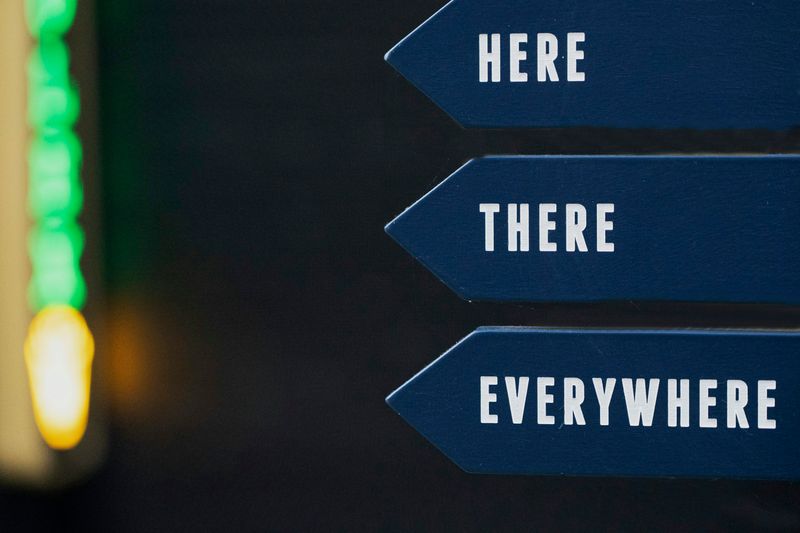12 Times Saying ‘No’ Is Actually the Healthiest Choice You Can Make

Learning to say no can feel uncomfortable, but it’s one of the most powerful tools for protecting your mental and physical health. Many people struggle with turning down requests because they worry about disappointing others or missing opportunities. However, saying yes to everything often leads to stress, burnout, and resentment. Understanding when to say no helps you create healthier relationships, achieve your goals, and take better care of yourself.
1. When Your Energy Tank Is Running on Empty

Feeling emotionally drained is your body’s way of sending an urgent message. When you’re already stretched thin, adding more commitments is like pouring water into a cracked cup—it just doesn’t hold.
Burnout doesn’t happen overnight. It builds gradually when you ignore your need for rest and recovery. Saying no when you’re exhausted isn’t selfish; it’s survival.
Protecting your energy allows you to recharge and show up better for the things that truly matter. Give yourself permission to pause and refill your cup before it runs completely dry.
2. When the Request Clashes With Your Core Beliefs

Your values are the compass that guides your life decisions. Agreeing to something that contradicts what you believe in creates internal turmoil that can eat away at your peace of mind.
Maybe it’s a work project that feels unethical, or a social event that makes you uncomfortable. Whatever the situation, compromising your principles for temporary approval damages your self-respect.
Standing firm in your convictions might feel difficult in the moment. But living authentically brings a sense of integrity that no amount of people-pleasing can match.
3. When It Pulls You Away From Your Dreams

Every yes to something unimportant is a no to something that matters. Your goals require focus, time, and consistent effort to become reality.
Distractions disguised as opportunities can derail your progress faster than you realize. That favor for a friend or extra project at work might seem harmless, but they add up quickly. Before you know it, weeks have passed without moving toward what you actually want.
Protecting your priorities means being selective about where you invest your precious time. Your future self will thank you for staying on track.
4. When Someone Uses Guilt as Manipulation

Guilt-tripping is a manipulation tactic that preys on your kindness. Phrases like “I thought you cared” or “Everyone else said yes” are designed to make you feel bad for setting boundaries.
Healthy relationships respect your right to decline without punishment. When someone consistently makes you feel guilty for saying no, that’s a red flag about their respect for you.
You’re not responsible for managing other people’s disappointment. Recognizing manipulation helps you protect your emotional well-being and maintain relationships built on mutual respect rather than obligation.
5. When Your Health Is on the Line

Nothing is worth sacrificing your physical or mental health. Working through illness, skipping meals for meetings, or losing sleep to meet someone else’s deadline creates long-term damage.
Your body keeps score even when you try to ignore the warning signs. Headaches, fatigue, anxiety, and illness are all messages telling you to slow down. Pushing through might seem productive, but it’s actually counterproductive.
Choosing health over obligation is the ultimate act of self-preservation. Without your well-being, you can’t show up for anyone—including yourself.
6. When Saying Yes Breeds Resentment

Did you know that agreeing out of obligation slowly poisons relationships? When you say yes but mean no, resentment grows like a weed in your heart.
You might smile on the outside while feeling bitter inside. Over time, this creates distance between you and the people you care about. The relationship becomes transactional rather than genuine.
Honest communication, even when it includes saying no, builds stronger connections. People would rather hear your truth than receive your reluctant, resentment-filled participation. Authenticity wins every time.
7. When Your Plate Is Already Overflowing

Overcommitment is the silent killer of quality work and personal satisfaction. Taking on more than you can handle doesn’t make you productive—it makes you scattered and ineffective.
Each additional responsibility dilutes your attention and energy. What could have been done excellently becomes mediocre when you’re juggling too much. Your reputation suffers, and so does your confidence.
Learning to say no protects your ability to deliver quality results. It’s better to do fewer things well than many things poorly. Your time is finite; treat it accordingly.
8. When FOMO Is Calling the Shots

Fear of missing out drives people to say yes to everything, creating exhausting schedules that leave no room for rest. Social media makes it worse by showing highlight reels that make every event seem essential.
Here’s the truth: you can’t be everywhere, and that’s perfectly fine. Missing a party doesn’t mean you’re missing out on life. Sometimes the best moments happen when you’re rested and present, not racing from one obligation to another.
Choosing intentionally what matters to you brings more joy than frantically trying to do it all.
9. When It Means Abandoning Your Own Needs

Constantly putting others first might seem noble, but it’s actually a recipe for depletion. You can’t pour from an empty cup, as the saying goes, and neglecting yourself helps no one in the long run.
Your needs matter just as much as anyone else’s. Rest, hobbies, personal time, and self-care aren’t luxuries—they’re necessities. When you consistently ignore them, you become a shell of yourself.
Saying no to others sometimes means saying yes to yourself. That balance is crucial for maintaining your mental health and ability to genuinely help when it counts.
10. When Your Gut Screams Danger

Intuition is your brain’s way of processing information faster than conscious thought. That uncomfortable feeling in your stomach when something seems off is worth paying attention to, even if you can’t explain why.
Ignoring your instincts to be polite or avoid awkwardness can put you in dangerous situations. Your safety matters more than someone else’s comfort. If a situation, person, or request feels wrong, trust that feeling.
Saying no to protect yourself is always the right choice. You don’t owe anyone an explanation when your internal alarm is ringing.
11. When It Creates Unhealthy Dependency

Helping someone is kind, but doing everything for them prevents their growth. When people become dependent on your constant assistance, you’re not helping—you’re enabling.
True support means empowering others to solve their own problems, not becoming their permanent crutch. Constantly saying yes to every request creates an unhealthy dynamic where they never develop independence or resilience.
Sometimes the most caring thing you can do is step back. Allowing people to struggle through challenges helps them build confidence and capability. Your no might be the push they need to stand on their own.
12. When You Need to Honor Your Own Boundaries

Boundaries aren’t walls meant to keep people out—they’re guidelines that teach others how to treat you. Without them, you become a doormat that everyone walks across without thinking twice.
Setting boundaries feels uncomfortable at first, especially if you’ve spent years being a people-pleaser. But discomfort is temporary, while the benefits of self-respect last forever. Clear boundaries create healthier, more balanced relationships.
When you honor your own limits, you teach others to respect them too. Saying no becomes easier with practice, and the right people will understand and appreciate your honesty.

Comments
Loading…